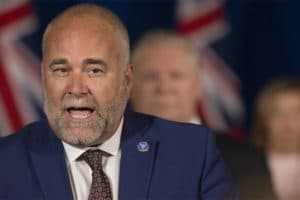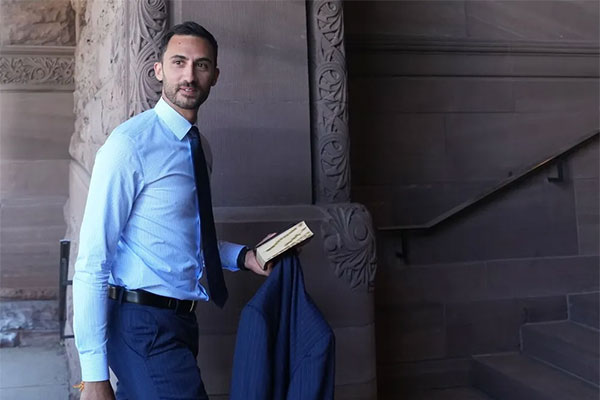- In a surprising move, Ontario’s Energy Minister Todd Smith has been replaced by Stephen Lecce, raising questions about the future of the province’s decarbonization strategy.
- Smith, known for his pragmatic approach, had been instrumental in shifting the Progressive Conservatives towards more responsible energy policies.
- With Lecce’s appointment, will Ontario continue to make strides in climate policy, or will there be a shift in direction?
In a move that’s raised questions about the future of Ontario’s decarbonization strategy, Minister Todd Smith has been shuffled out of the energy portfolio, swapping places with former Education Minister Stephen Lecce.
Widely seen as an effort to shore up Premier Doug Ford’s cabinet as the Progressive Conservatives (PCs) mull an early election call, Lecce’s appointment signals a new tone for the ministry and casts uncertainty over whether the province will continue to make gains on climate policy. After all, Smith has been instrumental in moving the PCs away from anti-renewables populism and toward more responsible policymaking.
Under his watch, Ontario has expanded transmission and distribution infrastructure key to renewable grid integration, procured massive amounts of solar, wind, and battery storage, invested in electric vehicle manufacturing, unveiled new energy efficiency programs, signed agreements with the Pickering and Bruce nuclear generating stations for additional capacity, and more.

Ontario Former Energy Minister Todd Smith. (thestar)
It’s fair to say then, that Smith has earned his reputation for pragmatism. The longer he led the Energy Ministry, the more the PCs seemed to begin trending in the right direction on decarbonization — at least for the most part.
Lecce, to his credit, has also delivered for the PCs, having presided over multiple rounds of collective bargaining, sweeping curriculum changes, and the tightening of per-student classroom budgets. As one of the highest-profile ministers, Lecce is no stranger to controversy, though his approach is decidedly different from Smith’s.
PC insiders are the first to acknowledge Lecce’s role as a government attack dog, so his move to energy risks frustrating existing coalitions that have grown fond of the ministry’s collaborations. And while it has yet to be seen whether Lecce will accelerate — or pull back on — decarbonization efforts, one thing is certain: we’re all going to be hearing a lot more about the federal carbon tax.
Despite being responsible for the backstop — having scrapped Ontario’s cap and trade program without developing a suitable replacement — in addition to imposing their own industrial levy, the PCs seem intent on obfuscating the truth surrounding carbon pricing. Ultimately, such a strategy may pay off at the polls, thanks in part to the party’s massive fundraising lead that will enable the PCs to blanket the airwaves with advertising.
Recent attempts to brand the Ontario Liberal Party’s newly-minted leader, Bonnie Crombie, as “Queen of the Carbon Tax” (even though she’s pledged not to implement the policy) further suggests Lecce’s appointment could mean more time spent on petty partisanship and less on building an abundant clean energy future.
Whether this shakeup will materially change Ontario’s decarbonization strategy is the big question.











Comments